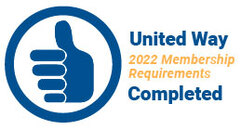|
After taking a several week break to discuss coping strategies related to sheltering in place, we return to our discussion of local recovery groups to help those involved in substance misuse.
Every person in recovery has a different situation, background and belief system. Just as there is no one-size-fits-all treatment plan for substance use disorder, there are a variety of recovery support groups to meet the varying needs of those in recovery. Another support group that is meeting in White and Carroll counties is Lifeline Connection, a Living Free Community. Living Free is a national organization providing the curriculum for every Living Free Community, but each Living Free Community is run under local direction to meet their individual community’s needs. According the Carroll County Lifeline Connection Website (cclifeline.org). “Our society is full of people who choose to live self-destructive lifestyles and endure every day the painful consequences of their choices. Everyone faces these situations at some time in life. Living Free small groups confront our mistaken thinking that keeps us involved in coping strategies that are not helpful or healing.” The Living Free website lists the following components of recovery from any self-destructive habit:
Living Free has a much more Christian focus than AA’s focus on “a higher power as you understand him.” But religious belief is not required or expected of the participants. Eleanor Estes, who was instrumental in bringing Living Free to White County, indicated that she has had atheists and agnostics attend and benefit from the classes. Where AA focuses on recovery from alcoholism, Living Free looks on a broader scale, addressing many forms of unhealthy coping strategies. Their goal is to guide individuals in discovering how to overcome harmful or destructive patterns. Their weekly classes include dealing with depression, anger, grief, PTSD, fear and finding peace. Living Free also supports families with classes on parenting, caring for aging parents, and restoring family relationships. In addition to weekly classes, Living Free offers a thirteen-week recovery program called Stepping into Freedom, providing twice weekly classes to inmates of the county jail and can be a part of Carroll County court ordered treatment plans. Living Free is an evidence-based program claiming an 89% success rate. Currently, in White County there are Living Free at two locations on Monday evenings. The classes run from eight to twelve weeks. Dian and Ed Davis, directors of Carroll County Lifeline Connection and state leaders for Living Free, emphasize that “we want to meet people at their point of need. You don’t have to be at a certain level of maturity to benefit. You can come as you are. Our goal is to help people become the best version of themselves they can possibly be.” Living Free membership is open to anyone. The Davis’ also mentioned that they are always looking for new facilitators. They need people who are stable, like-minded and have a heart for this volunteer ministry. Training is provided. For more information on Living Free in White or Carroll County, please contact Ed or Dian Davis [email protected] or call them at 765-426-2062.
0 Comments
Your comment will be posted after it is approved.
Leave a Reply. |
AuthorLynn Saylor is the AmeriCorps member working with the United Against Opioid Abuse Initiative alongside the White County United Way. She is a major facilitator of the United Council on Opioids serving White County and a regular contributor to local media. Archives
October 2020
Categories
All
|

 RSS Feed
RSS Feed
